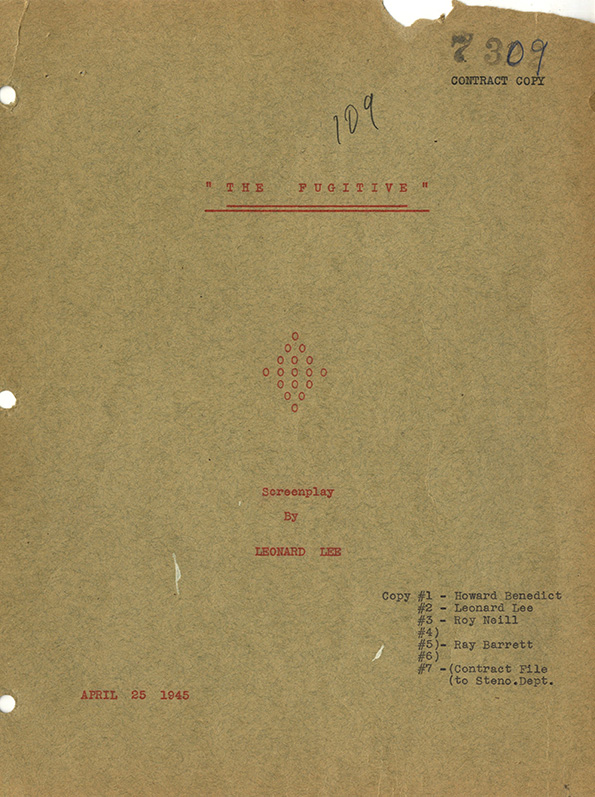One of the things I remember when I started out screenwriting was the paralyzing fear of producing some sort of “tell” that I was a newbie. Something in my script would act as a giant flashing marquee that lit up my status as an amateur. Many shared in this fear. There used to be entire screenwriting message boards dedicated to whether your script should have two brads on it or three. Or if your script should have a cover page attached. Strangely, many of these debates are still being had! Should you use the controversial, “We see,” when writing? Can you include camera directions?
Well I’m here to give you the REAL, the DEFINITIVE, list on what readers really care about when they’re reading a script. We’re going to put all of your old fears to bed. And maybe provide you with a few new ones. And because I’m feeling generous, I’m going to list these factors in order of importance. Finally, we’ll be able to answer that age-old question: “Will a reader toss my script if I use two spaces after a period instead of one?” Below are the top 10 things a reader cares about when reading a script…
1) Formatting – If a script is not formatted properly (correct font and margins), it’s always a harbinger of bad things to come. The good news is, if you buy screenwriting software, you don’t have to worry about this! There, I just solved the number one problem for you.
2) Insane page counts – The FIRST THING a reader does is check the page count. If they see anything over 120, they’re mad. If they see anything over 130, they’re furious. If they see anything over 140, they’ve mentally committed to skimming half your script. 100-110 pages is the optimal screenplay length. Stick with it or I’ll stick that missing third brad in your face!
3) Readability – Is the script easy to read? Do my eyes move across the page effortlessly? Do they move down the page effortlessly? Or am I stopping a lot, re-reading sentences in order to understand them? Am I confused about why a character said something? Is getting through the text like walking through quicksand? Readability is so important.
4) Engagement – Am I engaged by the story? Am I immediately pulled in? Do I want to see what happens next? Do I want to turn the page? Do I want to keep turning the pages? This goes back to the 10 Page Challenge. Hook me then continue to provide reasons for me to keep reading. If you can do this, I don’t care about any other mistakes you make.
5) Characters – Am I pulled in by a character? Am I intrigued by a character? Is a character so darn charming I fall in love with him instantly? As soon as a reader likes one of your main characters, you’re golden.
6) The dialogue isn’t bad – You’d think I’d say, “That the dialogue is good.” Sure, that would be great. But the truth is, I read, maybe, three scripts a year where the dialogue is stand-out good. When I’m reading, all I care about is that the dialogue isn’t bad enough that it draws attention to itself. Cringe-worthy lines. Try-hard banter. On-the-nose exchanges. Overtly mechanical exposition. The second I start noticing weak dialogue, the script is a passenger on the Titanic.
7) Is there anything special about this writer/script? – The large majority of the time, I’m reading bland concepts with bland, by-the-numbers, execution. I’m always looking for a script that’s got that extra kick to it. Maybe the dialogue is snappier. Maybe the writing style is charged (a la Christy Hall). Maybe the scenes are playing out in unexpected ways. If you can find a script with one elevated factor, you’re probably going to recommend that writer to other people.
8) Spelling/grammar mistakes – I’ll let one mistake slip. But when I see two mistakes early on, my faith in the script plunges. Three mistakes in the first 10 pages? Forget about it. There are screenwriters who say this shouldn’t matter. THEY’RE WRRRROONNNNG!!! I’ve got the biggest sample size to work with in Hollywood. And I can tell you that of all the times I’ve seen three spelling/grammar mistakes in the first ten pages, 99.999999% of the time, the script is doomed.
9) Confidence – Does the writer seem comfortable in the medium? Does it feel like they have a clear plan for their story? Confidence implies that they’ve been here before, which more often than not means a better script. A writer who writes tepidly, who seems unsure of their choices and looks constrained by this weird screenwriting format is a writer whose script I usually dislike.
10) They know what to do after page 45 – 15 pages after the first act ends is when 90% of screenplays fall apart. If your script is still building and still has momentum after page 45, it’s a strong indication that you’re aces with structure, providing me with mucho confidence that you can get me to the finish line.
Carson does feature screenplay consultations, TV Pilot Consultations, and logline consultations. Logline consultations go for $25 a piece or $40 for unlimited tweaking. You get a 1-10 rating, a 200-word evaluation, and a rewrite of the logline. If you’re interested in any sort of consultation package, e-mail Carsonreeves1@gmail.com with the subject line: CONSULTATION. Don’t start writing a script or sending a script out blind. Let Scriptshadow help you get it in shape first!


